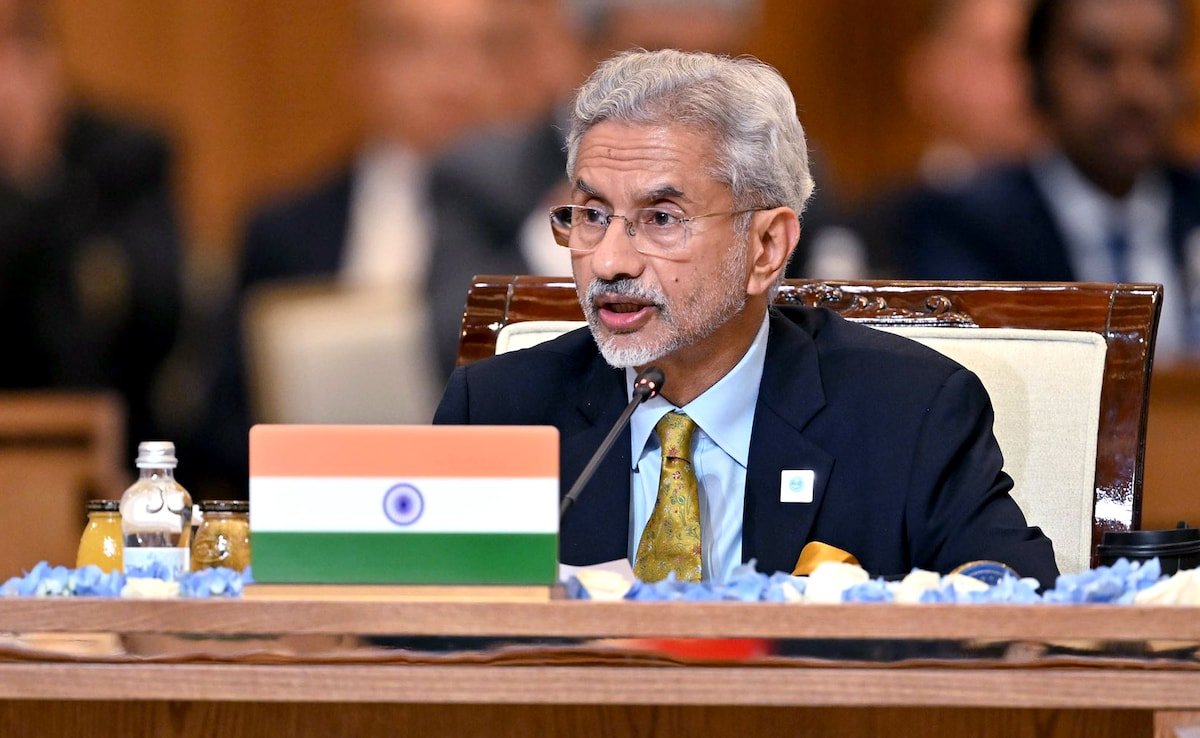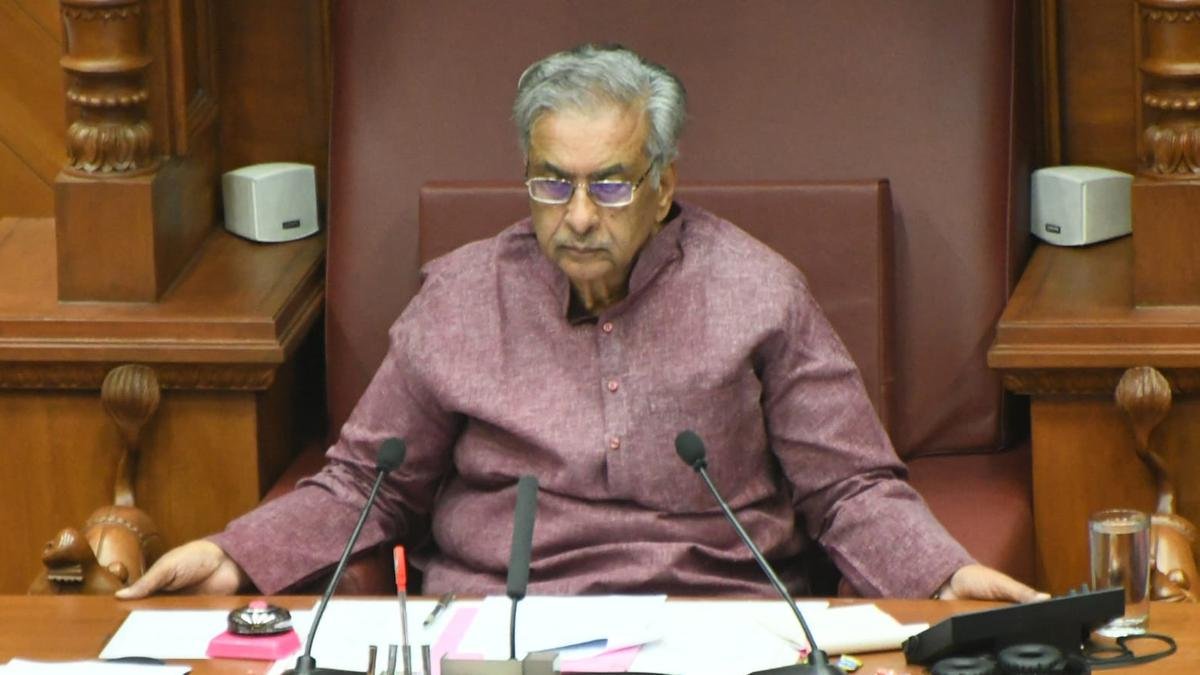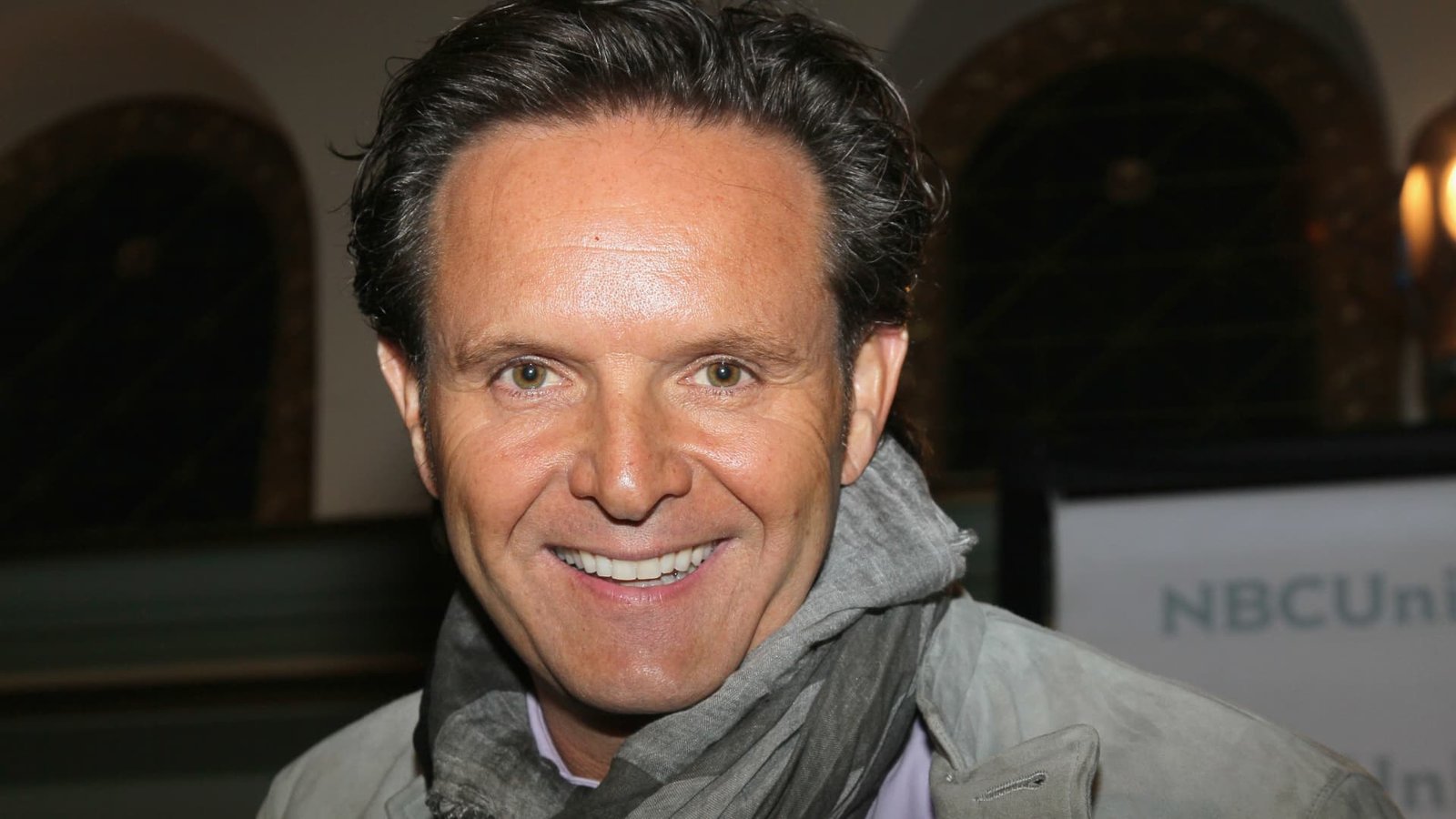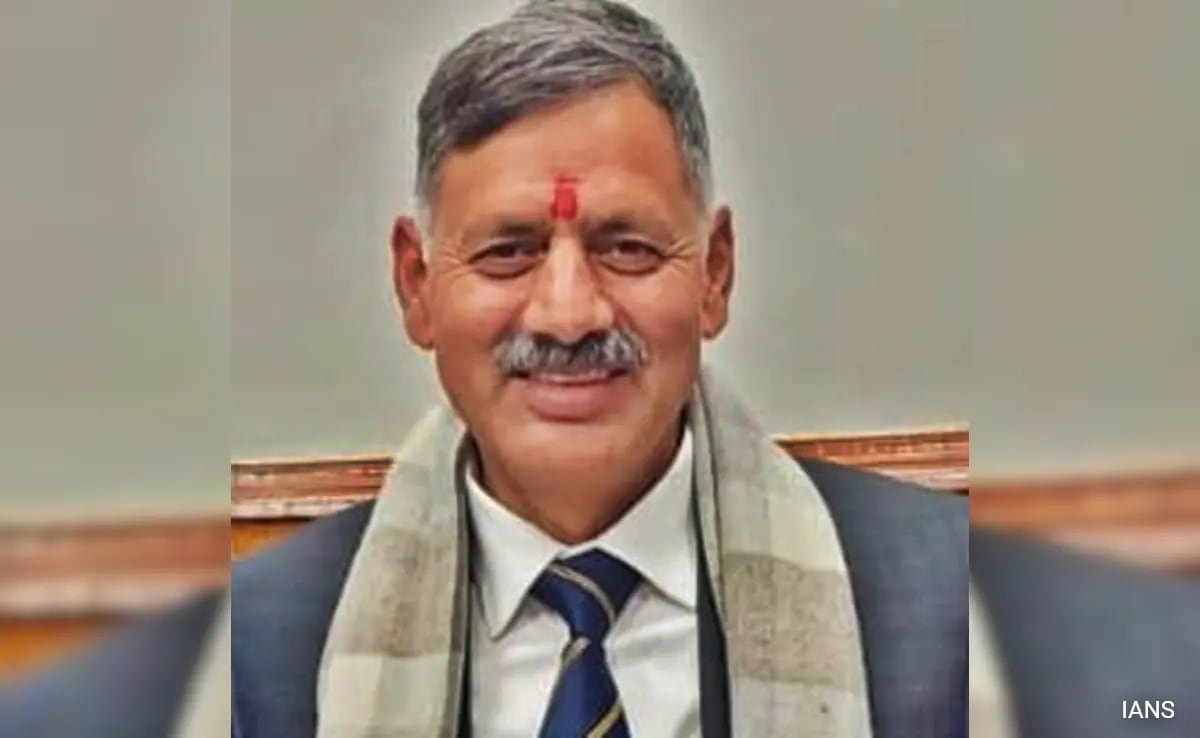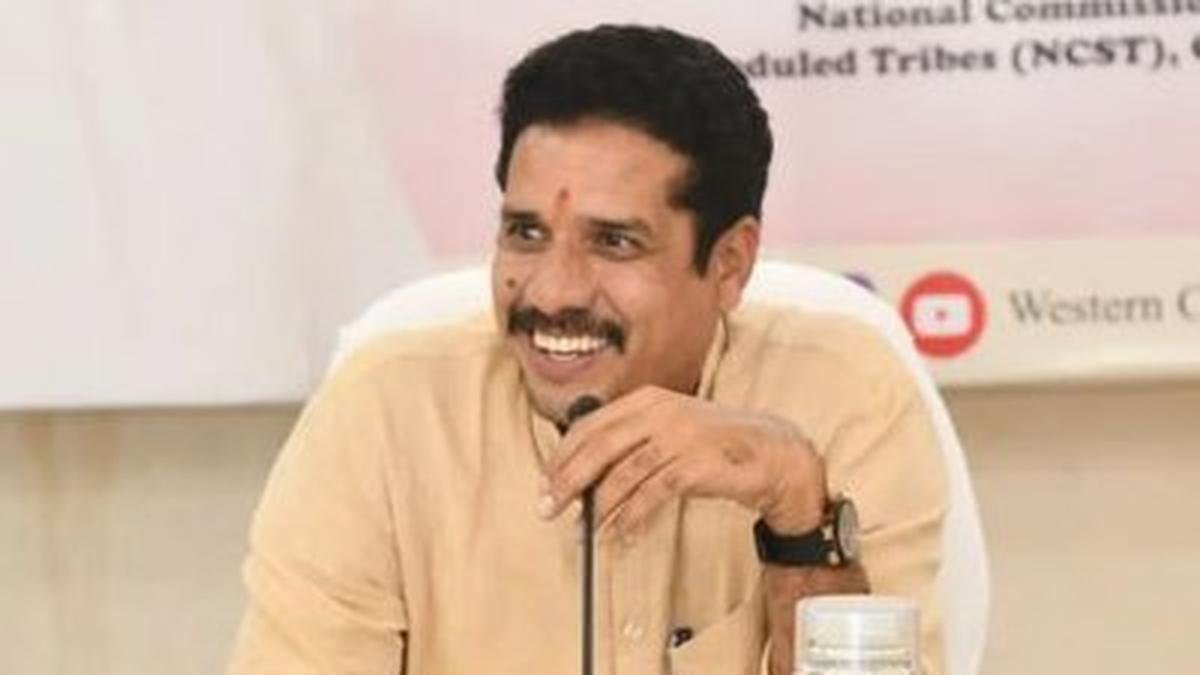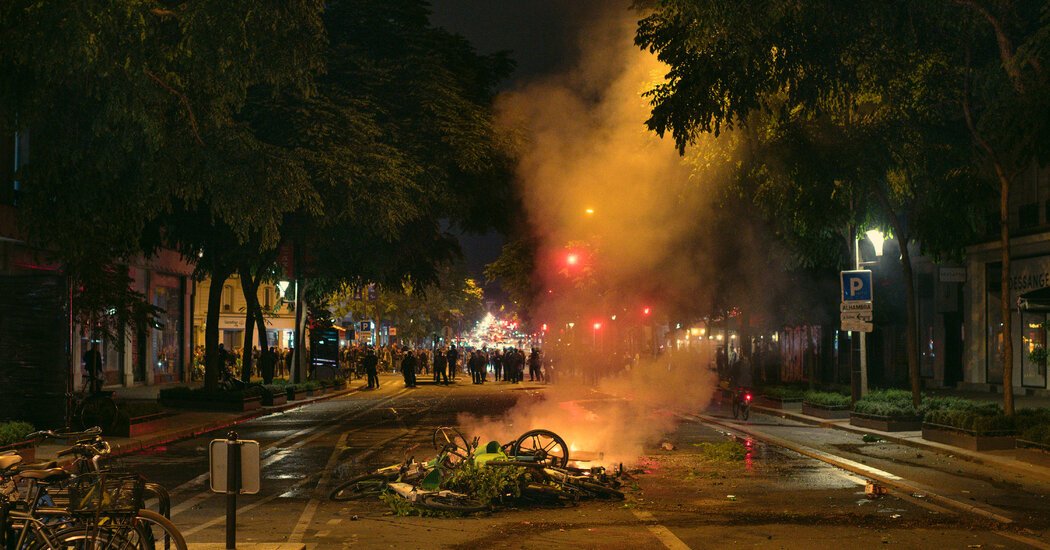
Instead of waking up on Monday to a country dominated by the far right, France awoke to becoming Italy, a country where only painstaking parliamentary negotiation may eventually yield a viable coalition government.
France said no to Marine Le Pen’s anti-immigrant National Rally party in legislative elections, another demonstration of its deep-seated resistance to nationalist adventures. It voted a resurgent left into a first place that fell far short of giving the left power, and it shifted the political heart of the country from an all-powerful presidency to the Parliament.
With the Paris Olympics set to open in less than three weeks, and an August exodus to the beaches or mountains a sacred feature of French life, talks to form a government may stretch into the fall, when France will need a government to pass a budget. The election, which might have provoked an uprising, produced an impasse.
The New Popular Front, a resurgent if fractious left-wing alliance, came in first with about 180 seats in the National Assembly and immediately demanded that President Emmanuel Macron ask it to form a government, saying it would put forward its choice of prime minister in the next week.
This demand ignored several things. Under the Constitution, Mr. Macron chooses the prime minister. In the 577-seat National Assembly, the New Popular Front is some 100 seats short of having a workable majority. It was not the program of the left-wing alliance that won it all its seats, but a combination of that and a decision by centrists and the left to form a “Republican front” of unity again the National Rally in the second round of voting.
Despite this, Jean-Luc Mélenchon, the combative left-wing leader, said he would not negotiate with potential coalition partners, nor change a single sentence of the left’s program.
None of this boded well for lifting the thick fog with which Mr. Macron’s snap “clarification” election has enveloped Paris.
France, with its presidential system, has no culture of coalition-building compromise. “We know nothing of that, we are a nation of would-be Napoleons,” said Nicole Bacharan, a political scientist.
The Napoleons will now have to put up with the nitty-gritty of a painstaking negotiation on an agreed agenda between parties with widely differing views of national priorities.
For example, the New Popular Front wants to lower the retirement age to 60 from 64, a year after Mr. Macron raised it from 62 to 64 after a bitter fight. Mr. Macron wants to make a priority of cutting the budget deficit; the New Popular Front wants to raise the minimum wage and freeze the prices of energy and gas. Mr. Macron’s government passed an immigration bill early this year tightening rules allowing foreigners to work, live and study in France. The left has pledged to make the asylum process more generous.
The division of the National Assembly into three large blocs of left, center and right offered no immediate basis for a working coalition.
Mr. Macron’s centrist bloc has about 160 lawmakers, down from 250, and the National Rally and its allies about 140, up from 89. France kept the far right from power, again, but did not arrest its ascent, fed by anger at immigration and a rising cost of living.
Mr. Macron, after a meeting on Monday with Gabriel Attal, the prime minister, said he had asked him to remain in office “for the moment” in order to “assure the stability of the country.” Mr. Attal, once one of Mr. Macron’s favorites, had offered his resignation.
Mr. Attal has broken loose from Mr. Macron, with the apparent intention of joining the race to succeed him in 2027. In a pointed speech on Sunday night, he said, “I did not choose this dissolution” of the National Assembly. He continued, “This evening a new era begins. From tomorrow, power’s center of gravity will, through the wishes of the French people, be more than ever in the hands of Parliament.”
A more direct rebuke to Mr. Macron for his highly personalized and top-down style of government, generally dismissive of the National Assembly, was hard to imagine, especially from a former disciple.
Mr. Macron, who is term limited and must leave office in 2027, has been largely silent for the past several days, which is uncharacteristic. Although his party lost a third of its seats, the election was not the widely expected debacle for him. He escaped humiliation; he demonstrated that a big victory for the National Rally in the European Parliament would not lead inevitably to the same in a national election. That was no small thing.
Now he is expected to take his time consulting the various parties of a broadened center to explore any coalition possibilities. “Calm” was the order of the day issuing from the Élysée Palace, the seat of the presidency.
There are two red lines for the president: governing with the National Rally, whose young party leader Jordan Bardella had hoped to become prime minister, and with the far-left France Unbowed party of Mr. Mélenchon, which Mr. Macron has accused of antisemitism. He will try to coax the moderate left, including socialists and Greens, as well as mainstream conservatives, to join in a coalition.
On Wednesday, Mr. Macron will be in Washington for the NATO summit. This will be a means to demonstrate that his authority on the international stage, a traditional preserve of French presidents, is undiminished and that the French commitment to supporting Ukraine will not waver at a time when American political uncertainty is rampant.
If Mr. Biden’s health is the talk of Washington, Mr. Macron’s way of exercising power is the talk of Paris. Will he now be obliged to correct course for Mr. Attal’s “new era” centered on Parliament?
“Today,” said Raphaël Glucksmann, a prominent Socialist, “we put an end to the Jupiter phase of the Fifth Republic.”
Mr. Macron used the word “Jupiterian” in 2016, before he became president, to describe his approach to government. A mighty wielder of almost Godlike authority was more appealing to the French, he mused, than the “normal” presidency of François Hollande. The French, he suggested, are partial to the mysteries of great authority.
Up to a point, it seems, on the evidence of seven years of Mr. Macron’s rule.
“We are in a divided assembly, and so we have to behave like adults,” Mr. Glucksmann, who led a successful Socialist Party campaign for last month’s European Parliament election, said. “That means we are going to have to talk, to engage in dialogue, and to accept that the National Assembly becomes the heart of power.”
He described this as “a fundamental change in political culture.”
France Unbowed accounts for an estimated 75 of the 180 seats of the New Popular Front, the Socialists about 65, the Greens about 33, and the Communists less than 10. Holding the alliance together will be arduous, as the comments from Mr. Glucksmann illustrated.
In theory, as a moderate used to building coalitions in the European Parliament, Mr. Glucksmann might be a candidate for the prime minister of a coalition including the Socialists, the Greens, the Communists, Mr. Macron’s centrist bloc, and about 60 mainstream conservative lawmakers from The Republicans.
But of course Mr. Glucksmann’s approach and beliefs clash with Mr. Mélenchon, who rejects dialogue with potential partners, and they also clash with Mr. Macron.
Compromise is not in the air, not yet, at least.
There is no easy way out of the post-electoral French fog, even as the Olympic flame is about to arrive in the French capital on July 14, Bastille Day, when France commemorates its Revolution and the beheading of its monarch.

